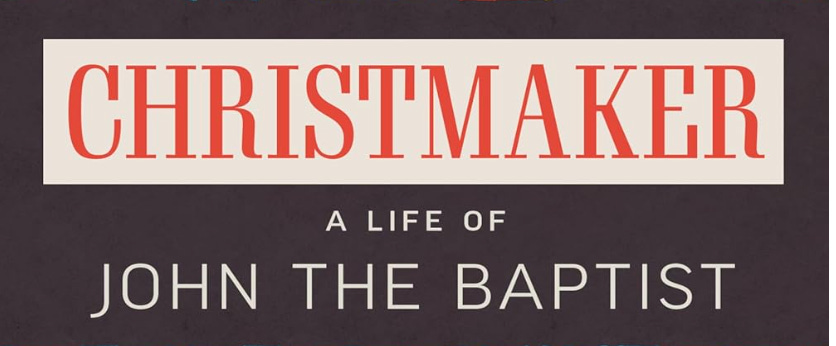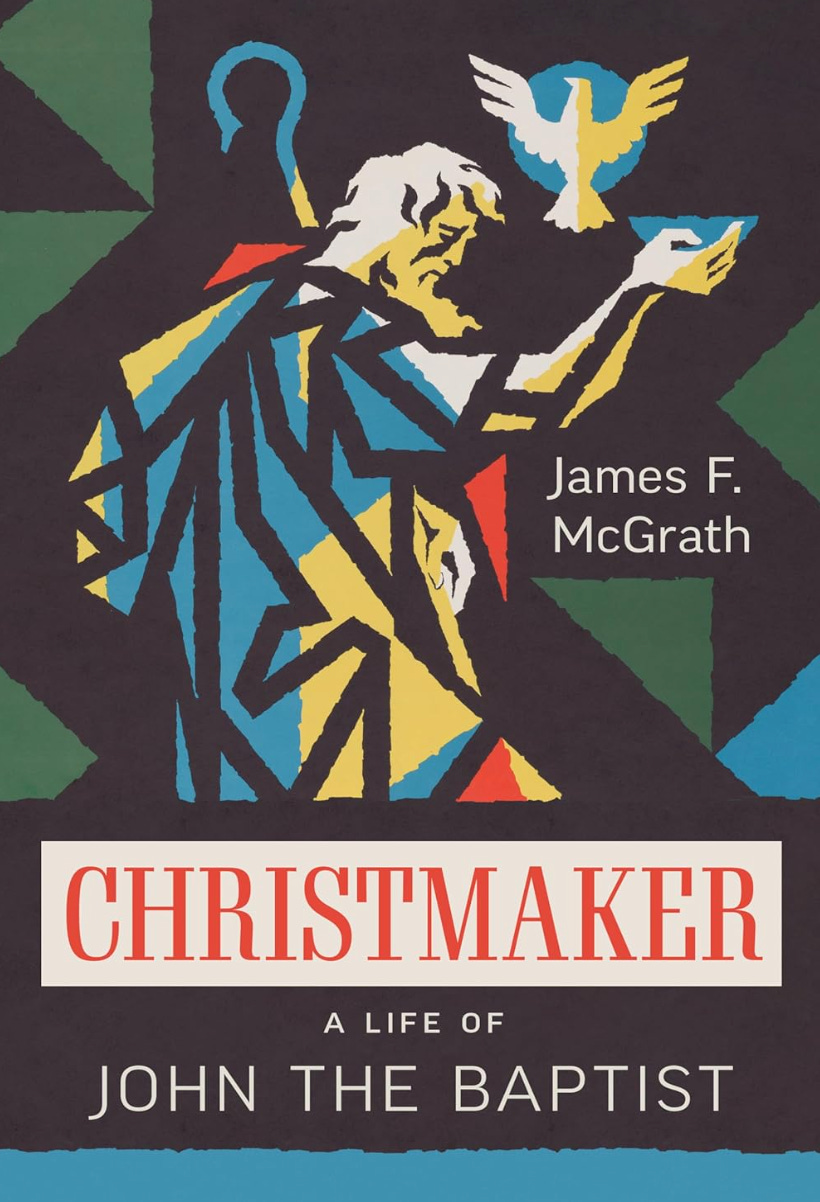John Was a Big Deal Until...
John the Baptist was a big deal until Jesus came along. I turn to a new, accessible book, designed to be read with his forthcoming more academic volume, by James F. McGrath, Christmaker: A Life of John the Baptist (Eerdmans, 2024).
Mark begins his Gospel with John, informing us of his message (prophetic fulfillment of Isaiah, baptism of repentance, confession of sins), his wilderness location, his attire as “cosplay” (not all that unusual, but not very comfortable), his popularity, and his primary rite: baptism. Back to the message: he preached about the coming one, and McGrath calls him the “Christmaker.” (Matthew, Luke, and John follow Mark in this emphasis on John early in the life of Jesus.)
I want to explore this book because it will be readable to a wide audience. I suspect it will be provocative for some, and McGrath enjoys some provocation. “By dressing as he did, John styled himself as a prophet in the vein of those who shake things up, challenge the status quo, and even bring about regime change.”
Jesus became known through John, and to understand Jesus one needs to understand John. Tell us, do you think of Jesus as a follower of John (at first)?
He begins with a study of John as a “Rebellious Son.” He opens with some answers he will work through: John rebelled against parental authority, he fought social norms, and he pushed against his religious tradition. How so? He offered “an alternative means of forgiveness” and he criticized “Herod Antipas” and he pushed against “the Pharisees and Sadducees.”
John’s father was a priest. John offered a rite of baptism in the Jordan for forgiveness. This can only be an alternative to the temple, so he argues. He offered an alternative within the religion of his father; he did not reject his father’s religion.
Why did he do this? This is where McGrath’s explanation gets psychological. He finds echoes of the Nazirite movement in his mother’s own connections to Samson and Samuel (1 Samuel 1; Judges 13), and I find such a connection plausible (echoes are in Luke 1). Long hair, restricted from grape products (Numbers 6). “John was being depicted like these other heroes of his people from long before him.” His mother longed for a baby, and the prayer sounds like Samuel’s mother especially. Priests trimmed their hair (Leviticus 10:6). John’s long hair and diet thus side with his mother’s Nazirite aspirations and not his father’s expectations for his son to follow in his steps to be a priest.
McGrath gets somewhat Freudian or psychoanalytic here: “Before he was even capable of making choices, John was placed in the impossible situation of having to choose between the way of life inherited from his father and the way of life to which his mother had dedicated him.” He posits that Zechariah’s muteness after the birth of John was when the mother dedicated him to be a Nazirite. He explains it thus: “To long for a son, only to be told that he can never be a priest, would be a shock. It was a sufficiently traumatic experience for him to have been so shocked as to have temporarily lost the ability to speak.” I’m not convinced.
Household tensions were “palpable.”
For you… is this too speculative and imaginative? Or is this reasonable and plausible?
John thus explores scriptures, and as the son of a priest he would have had more education than most, and comes to the conclusion that the “monopoly” on redemption in the temple was mistaken. It needed to be challenged.
John is thus a rebellious son. “Ultimately he chose his mother's vow over his father's lineage.” We all need to agree that John clearly chose not to move in the direction of becoming a priest, and his public ministry at least challenged the temple authorities and leaders in Jerusalem. In doing these things, John did not follow in his father's tradition.
I don't know that we can say that John's wilderness ministry meant that he had left the tension in his home or had been kicked out of the home, as McGrath suggests. He explores with finesse and nuance, though briefly, the similarities and dissimilarities of John with the Qumran/Essene community. They were, he concludes, a “conversation partner” and he was not an “adherent.” Wild honey and locusts were kosher foods; not the diet of a wacko. Plus, in the wilderness they were free. His wilderness time gave him a vision for a wilderness-like beginning.
Jesus too was a “rebellious son” (Matt 11:18-19//Luke 7:33-34) as seen in Deuteronomy 21:18-21.
The prayer Jesus is asked to give to his disciples echoes, McGrath contends, the prayer John gave to his followers, one of whom was Jesus. That prayer reflects John’s own preaching and mission: God as Father, kingdom, food, forgiveness. Thus, “What I do think we can say with confidence is that the key ideas in the prayer were not Jesus’s innovation but reflect John’s influence on him.” The temptation narrative, too, echoes the vision for life set out by John.
John styled himself as an Elijah figure. He was thus prophetic. But also royal? The words of his father Zechariah in Luke 1:69, “raised up a horn of salvation for us in the House of his servant David,” connects John to royalty. In the Infancy Gospel of James Elizabeth and John escape from Herod, who seeks John, whom Herod thinks could become a king. McGrath: “John's movement may have viewed him as a priest king.”
(Mind you, I’m assuming McGrath’s forthcoming academic study will provide more evidentiary support.)




Fascinating and probably wrong. I wonder if the accessible book or the coming academic study explains the fetus John leaping for joy in his mother's womb at the presence of the embryonic Jesus who was conceived inside Mary's virgin womb by the Holy Spirit, the little Gospel detail that shows to my mind just who followed who and also who was The Maker.
Thank you Scott for sharing this thought provoking book and your questions